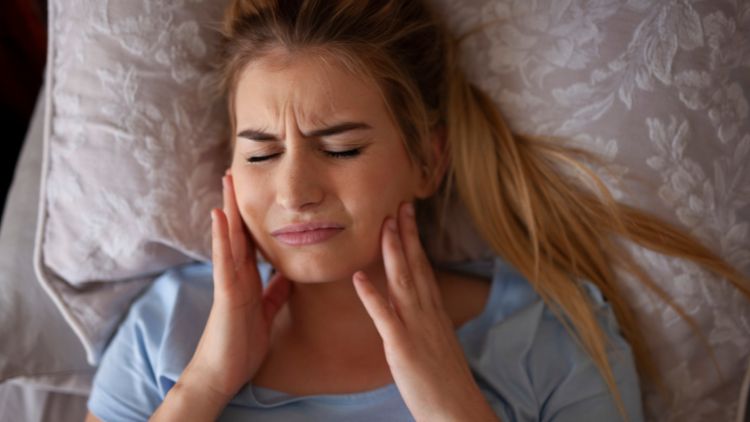
If you wake up with sore jaws, a headache, or notice your teeth are more sensitive than usual, you might be grinding your teeth at night. Known as bruxism, nighttime teeth grinding is common and can have lasting effects on your dental health. Understanding bruxism and finding ways to protect your teeth are essential steps in avoiding unnecessary pain and tooth damage. Let’s dive into what bruxism is, the risks it poses, and how you can protect your smile.
What is Bruxism?
Bruxism is the medical term for grinding, clenching, or gnashing your teeth. This can happen during the day, but for many people, it occurs most frequently at night during sleep. People grind their teeth for various reasons, including stress, anxiety, sleep disorders, and even issues with jaw alignment. Since most people aren’t aware they’re grinding their teeth at night, bruxism can be difficult to catch early.
Common symptoms of bruxism include:
- Jaw pain or soreness upon waking
- Frequent morning headaches
- Increased tooth sensitivity or worn-down teeth
- Chipped, cracked, or loose teeth due to grinding pressure
- Complaints from a sleeping partner about grinding sounds during the night
Signs You May Be Grinding Your Teeth at Night
It can be challenging to recognize bruxism if you’re not conscious of it, but here are some signs that might help:
- Jaw Pain and Facial Soreness: Many people with bruxism experience tension in the jaw and face upon waking.
- Frequent Headaches: Bruxism-related headaches often feel like a dull ache that starts around the temples.
- Worn or Damaged Teeth: Persistent grinding can lead to visible signs of wear on teeth, making them appear flattened or chipped.
- Teeth Sensitivity: If your teeth feel more sensitive, especially to hot or cold, it could be due to enamel wear from grinding.
- Observations from a Partner: Often, someone sleeping nearby might hear grinding or clenching sounds, giving you an external sign to go on.
Risks of Untreated Bruxism
Ignoring bruxism can lead to several dental health issues over time:
- Tooth Wear and Fractures: Consistent grinding puts intense pressure on teeth, which can wear down tooth enamel and increase the risk of cracks, chips, and fractures.
- Jaw and Muscle Pain: Bruxism can strain the muscles in your jaw, leading to discomfort, stiffness, and even temporomandibular joint (TMJ) disorders.
- Headaches and Sleep Disruptions: Grinding teeth can contribute to tension headaches and disturb sleep quality, leading to fatigue and irritability.
How to Protect Your Teeth from Nighttime Grinding
Fortunately, there are practical ways to prevent the damage caused by nighttime grinding. Here are a few effective solutions:
1. Use a Custom Nightguard
One of the most reliable ways to protect your teeth from grinding is by wearing a nightguard while you sleep. A nightguard is a specially designed device that fits over your teeth and absorbs the impact of grinding. A custom nightguard from your dentist is ideal, as it will be fitted to your mouth, making it comfortable to wear and more effective at protecting your teeth. Over-the-counter nightguards are available, but they often lack the tailored fit and durability of a custom-made option.
2. Manage Stress and Anxiety
For many people, stress is a significant trigger for bruxism. Finding ways to manage stress can help reduce grinding. Consider techniques like mindfulness, meditation, deep breathing exercises, or journaling to relax. Even taking a few minutes each day to unwind can have a positive impact on stress levels, which in turn may reduce bruxism symptoms.
3. Improve Sleep Quality
Poor sleep quality is linked to increased bruxism. Ensuring you have a relaxing nighttime routine can help. Try avoiding caffeine in the late afternoon and evening, establishing a regular sleep schedule, and creating a calm sleep environment. Simple steps like these can contribute to better sleep, which might lessen grinding.
4. Correct Jaw Alignment Issues
Sometimes, bruxism is related to the alignment of your jaw. If your teeth or jaw are misaligned, it could contribute to nighttime grinding. Consulting with your dentist or orthodontist can help determine if alignment is an issue, and they can recommend treatments to address it, such as orthodontic work or other alignment therapies.
When to See Your Dentist
If you notice signs of bruxism or suspect that you’re grinding your teeth at night, it’s a good idea to consult your dentist. Early detection allows for a range of treatment options that can prevent damage and ease discomfort. Regular dental check-ups are also important, as your dentist can catch early signs of bruxism during routine exams. By addressing bruxism early, you can protect your teeth from further damage and manage any discomfort associated with grinding.
Conclusion
Nighttime teeth grinding may seem like a minor issue, but it can lead to serious dental problems if left untreated. Taking steps to manage stress, improve sleep, and invest in a custom nightguard can make a huge difference in protecting your teeth and ensuring a pain-free smile. Bruxism is treatable, so if you’re experiencing symptoms, don’t hesitate to take action.
